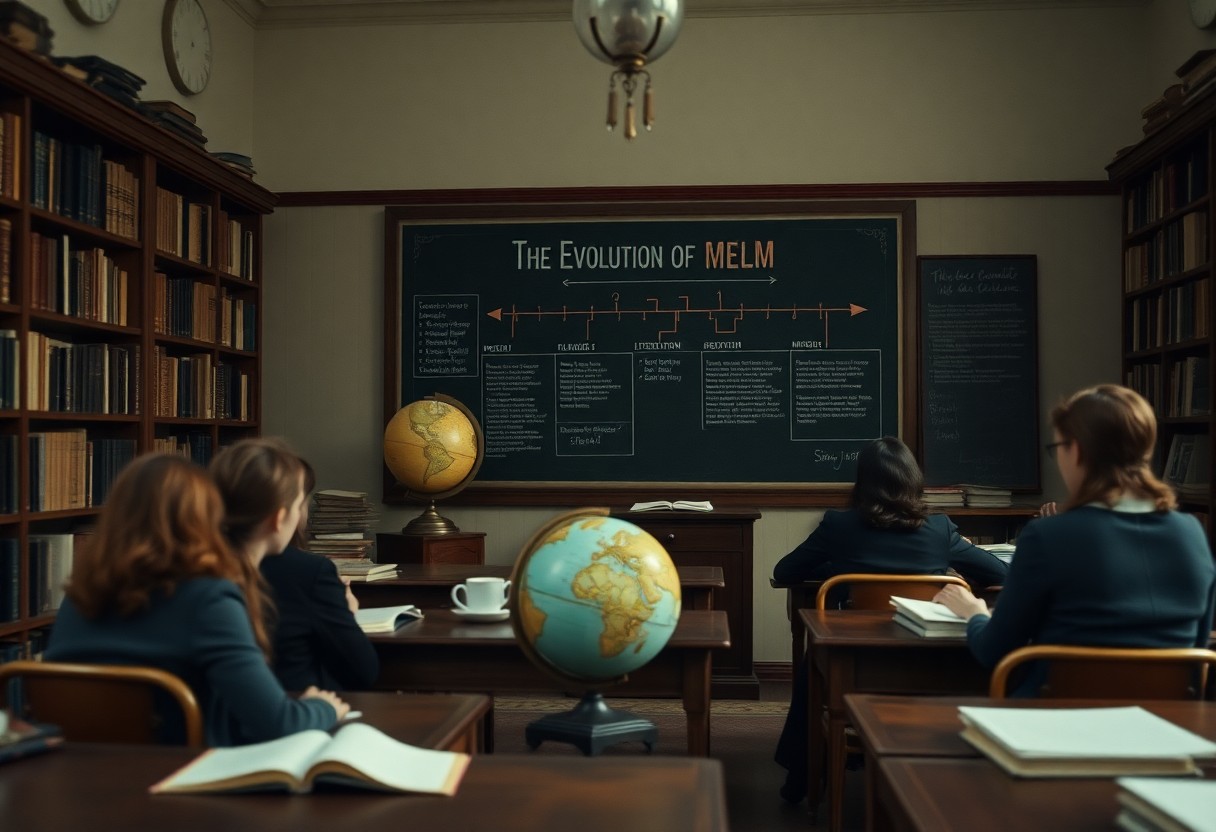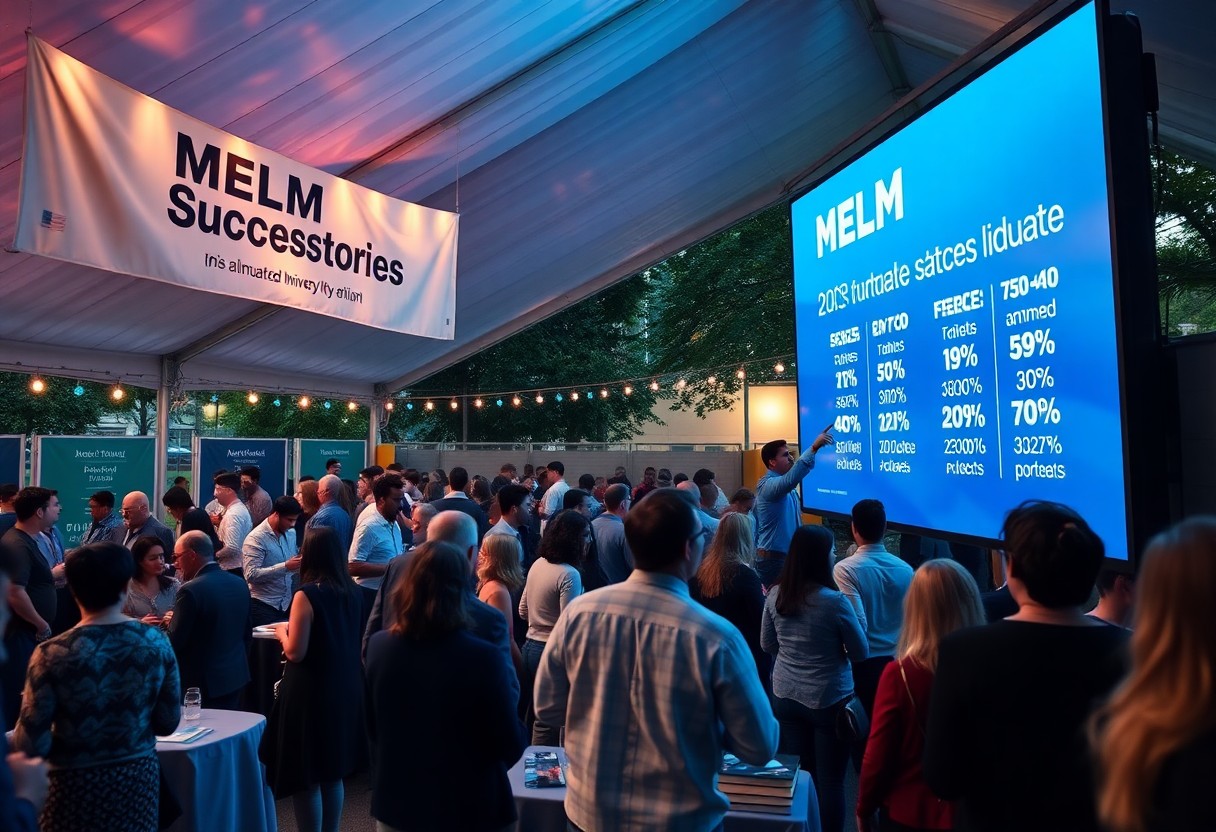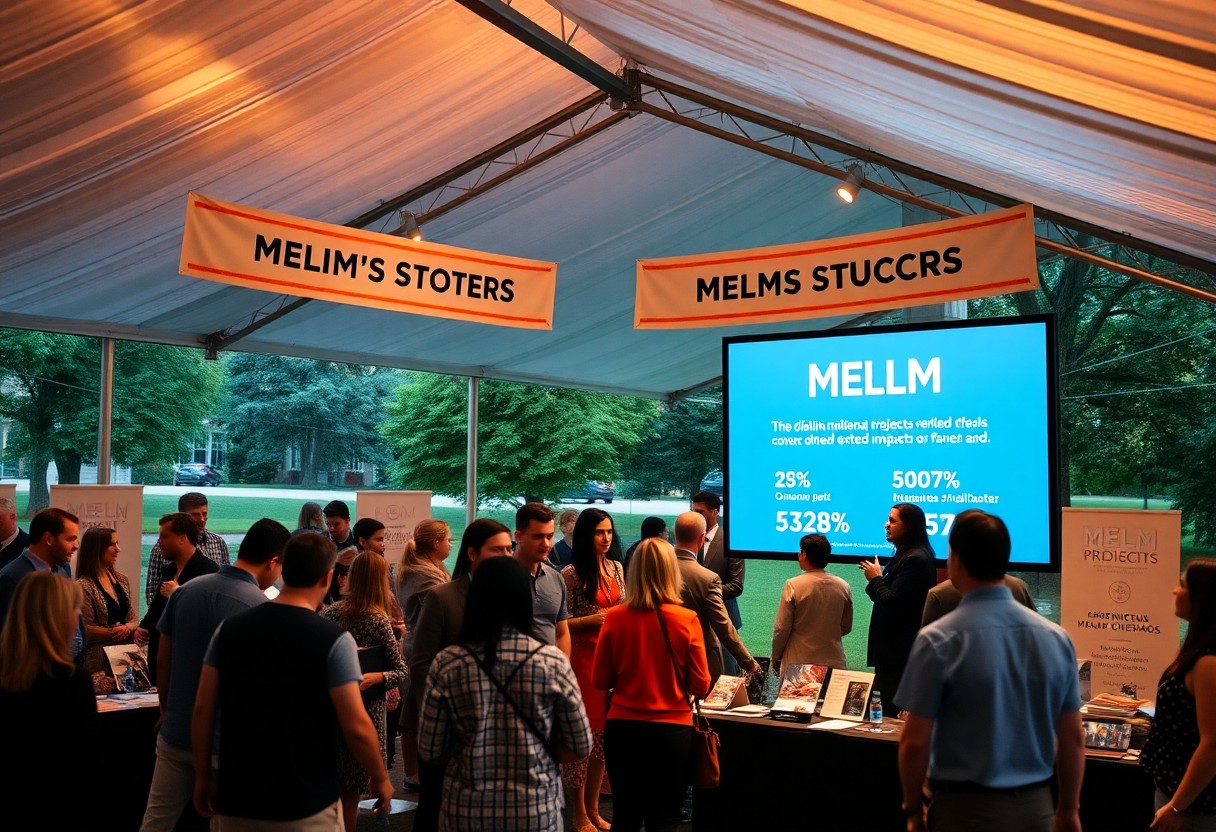Most aspiring students of literature and media seek to deepen their understanding of cultural narratives and critical theory, making the Master of English Literatures and Media (MELM) an ideal choice. In this program, you will explore diverse texts and media forms while honing your analytical skills. You will gain exposure to contemporary debates in literature and media studies, enriching your appreciation of global narratives. Your journey in MELM will equip you with the knowledge and expertise to navigate the complexities of cultural communication and engage with a wide range of audiences.
Key Takeaways:
- The Master of English Literatures and Media (MELM) program emphasizes the analysis and interpretation of literary texts across various media formats.
- Students engage with contemporary issues in literature and media, developing critical thinking and analytical skills that are applicable in diverse careers.
- The program often includes interdisciplinary approaches, combining literary studies with digital media, cultural studies, and communication theory.

The Evolution of MELM: A Historical Perspective
The Master of English Literatures and Media (MELM) program has undergone a significant transformation over the decades, evolving from traditional literary studies to a more integrated approach that encompasses diverse media. This transition mirrors broader cultural shifts and academic trends, allowing for an enriched exploration of texts ranging from classic literature to contemporary digital storytelling. The curriculum now embraces interdisciplinary methodologies, ensuring that you can navigate the complex landscape of narrative forms in today’s society.
The Roots of English Literatures in Academia
Your journey into MELM can be traced back to the origins of English studies in academia, which gained traction in the 19th century. Pioneers like Matthew Arnold and F.R. Leavis championed the importance of literary criticism, laying a foundation for future scholars. As English literature became a staple of university curricula, it emphasized the analysis of canonical texts, reflecting cultural values and philosophical inquiries that continue to be examined today.
The Rise of Media Studies and Their Interconnection
With the emergence of new communication technologies in the 20th century, media studies began to carve out its niche within academia. As film, television, and digital platforms rose to prominence, the intersection of literature and media became increasingly relevant. Scholars such as Marshall McLuhan highlighted the impact of various media on society, urging you to consider how these forms shape perceptions of literature and culture. This convergence invites a richer discourse, blending traditional analysis with contemporary media literacy, enabling you to appreciate narratives in their multifaceted forms.
The rise of media studies is not just a footnote in cultural history; it represents a pivotal expansion of your analytical toolkit. The study of film, television, and digital narratives in conjunction with literary texts allows for a holistic understanding of storytelling. For instance, the adaptation of literary works into film offers a vivid illustration of how narrative strategies can shift across different media. By exploring these adaptations, you can investigate not only how your favorite stories are reinterpreted but also the cultural implications of their transformations. This comprehensive approach is why the MELM program embraces both literatures and media, helping you navigate the evolving landscape of narratives in the 21st century.
The Curriculum Breakdown: Core Courses and Specializations
The MELM curriculum is thoughtfully structured to provide a comprehensive understanding of both literature and media, ensuring you acquire necessary skills and knowledge. Core courses lay the foundation, while various specializations allow you to tailor your studies to your interests and career aspirations. Whether you aim to probe into literary analysis or explore contemporary media theories, the program’s flexibility means you will find the pathway that aligns with your goals.
Essential Literary Theories and Critiques
In this course, you probe into key literary theories that have shaped critical discourse over the centuries. You will explore various approaches, from structuralism to post-colonialism, equipping yourself with the tools to analyze texts through diverse lenses. Engaging with seminal works, you gain a robust understanding of how these theories apply to both historical and contemporary literature.
Media Textual Analysis and New Media Approaches
This course focuses on dissecting media texts through analytical frameworks that incorporate new media practices. You will learn to critique films, television shows, and digital content, enabling you to understand their cultural significance and impact. Strategies for exploring emerging media forms cultivate both analytical and practical skills, preparing you for the evolving media landscape.
Media Textual Analysis and New Media Approaches is designed to push the boundaries of traditional media studies. By examining a range of formats—from classic cinema to viral online videos—you will develop a nuanced perspective on how narratives work across different mediums. The course emphasizes hands-on experience, encouraging you to engage with various media projects, fostering creativity alongside critical thinking as you explore the dynamics of audience engagement in a digital age.
Elective Offerings: Tailoring Your Degree for Career Goals
You have the flexibility to select from a range of electives that align with your personal interests or professional aspirations. Courses such as Creative Writing, Digital Humanities, and Film Studies provide opportunities to broaden your expertise and enhance your resume. Tailoring your degree through thoughtfully chosen electives ensures that you are well-prepared to meet the demands of various career paths.
Elective offerings within the MELM program empower you to shape your educational journey in a direction that suits your ambitions. For example, if you’re interested in a career in publishing, choosing electives that focus on editing and manuscript development would be beneficial. Alternatively, those drawn to contemporary digital storytelling can opt for courses in multimedia production. This degree of customization not only enriches your academic experience but also positions you favorably in the competitive job market by aligning your skills with industry needs.
The Integration of Technology: Digital Humanities in MELM
The integration of technology within the MELM program highlights the transformative impact of digital humanities on literary studies. By utilizing innovative digital tools and platforms, you can deepen your understanding of texts and engage with literature in ways previously unimaginable. These advancements not only enhance traditional literary analysis but also allow you to approach literature through interdisciplinary lenses, marrying technology and the humanities effectively.
Innovative Tools for Literary Analysis
With advancements in technology at your fingertips, you’ll discover innovative tools that revolutionize literary analysis. Software programs like Voyant and NVivo enable you to employ text mining and qualitative analysis, revealing patterns and insights that traditional methods might overlook. You can analyze large volumes of text through data visualization, making complex narratives more accessible and interactive for both your research and presentations.
The Role of Social Media in Modern Literary Discourse
Social media platforms have become vital spaces for literary discourse, fostering an active and participatory community around contemporary literature. As a MELM student, you can engage with authors, critics, and fellow readers in real-time discussions, enabling a dynamic exchange of ideas that shapes the literary landscape. Platforms like Twitter or Instagram facilitate instant feedback on literary works and create opportunities for new genres, such as micro-poetry and serialized literature.
Engaging on social media allows you to tap into varied perspectives, such as those from marginalized voices and global influences, enriching your understanding of literature. Hashtags like #Bookstagram or #LitChat connect you with a broader audience, where you can share insights and critiques. This contemporary discourse not only influences literary trends but serves as a platform for both established and emerging authors to gain visibility, ultimately shaping the next wave of literary scholarship and social commentary.
Career Pathways: From Academia to Industry
The MELM program equips you with versatile skills that open diverse career pathways spanning both academia and various industries. As you navigate your post-graduate journey, you’ll find options tailored not only to traditional roles but also to emerging fields that thrive within the digital landscape. Whether you envision a life of academia or aim to look into innovative sectors, the skills acquired during your MELM studies lay a solid foundation for your career trajectory.
Traditional Academic Careers: Teaching and Research
Pursuing a traditional academic career remains a popular option for MELM graduates, with many becoming educators or researchers in universities and institutions. These roles often involve developing curriculums, conducting scholarly research, and publishing articles in academic journals, which allows you to contribute to the field of English literature and media while sharing your knowledge with students and peers.
Emerging Roles in Digital Content Creation and Publishing
The explosion of digital media has created a demand for roles in content creation and publishing that MELM graduates are well-suited for. From writing engaging blog posts to curating content for social media platforms, your expertise will be invaluable in crafting compelling narratives that resonate with diverse audiences.
In roles such as digital content manager or multimedia specialist, your ability to blend literary analysis with modern technology is a game-changer. You can leverage your understanding of narrative structures and audience engagement to produce videos, podcasts, and interactive content that captivates users. Additionally, the rise of e-publishing presents opportunities for MELM graduates to work as editors or marketing professionals, transforming traditional publishing methods into innovative digital experiences.
The Importance of Networking and Professional Development
Establishing a robust professional network is crucial for your success in any career path you choose post-MELM. Engaging with peers, mentors, and industry leaders allows you to gain insights into job opportunities and emerging trends, fueling your career advancement and professional growth.
Networking goes beyond exchanging contact information; it’s about building lasting relationships that can lead to job offers, collaborations, and mentorships. Participating in workshops, conferences, and social media groups dedicated to English literature and digital media can expand your network significantly. The knowledge you gain from these interactions often provides leads on unadvertised job openings and helps you stay abreast of industry developments, ensuring you remain competitive in a rapidly evolving job market.

Alumni Success Stories: Real-World Impacts of MELM
MELM graduates have forged remarkable paths across various sectors, showcasing the diverse applications of their skills. Many former students have taken roles in media organizations, publishing houses, and educational institutions, leading innovative projects that reflect the nuances of contemporary literature and digital media. With a focus on critical analysis and creative expression, alumni have contributed significantly to various cultural dialogues, influencing both academic discourse and public perceptions. Their success stories offer a testament to the program’s ability to prepare you for meaningful engagement in a rapidly evolving landscape.
Transformative Projects and Initiatives
Your MELM experience equips you to spearhead transformative projects that resonate within your chosen field. Alumni have successfully initiated community literacy programs, inter-disciplinary collaborations, and multimedia storytelling projects that elevate cultural representation and accessibility. For example, graduates have organized literary festivals that celebrate diverse voices, creating platforms for underrepresented writers and fostering dialogue around social issues. Such initiatives not only hone your project management skills but also reinforce the significance of literature and media in driving social change.
Contributions to Industry and Cultural Dialogue
As MELM graduates enter industry roles, they become key players in shaping the cultural landscape. Your analytical skills allow you to engage with complex narratives that reflect societal shifts, while creative insights position you to influence media production practices. Alumni have contributed to influential publications, curated art exhibitions that challenge conventional narratives, and developed content that resonates with diverse audiences. You’ll find former classmates advocating for inclusivity in publishing and using their expertise to critique and innovate within the industry.
Engagement with cultural dialogue is paramount for MELM alumni, who utilize their backgrounds to enrich discussions around literature and media. You may contribute articles to high-profile journals or participate in panels that address pressing societal issues. Alumni frequently influence industry standards by advocating for ethical storytelling and equitable representation. Their efforts extend beyond mere participation; they push boundaries and create platforms that uplift marginalized voices and explore intricate cultural dynamics. Whether through digital campaigns or grassroots movements, your involvement enhances not only your career but also society’s collective narrative, fostering a more inclusive understanding of shared human experiences.
To wrap up
Summing up, pursuing a Master of English Literatures and Media (MELM) offers you an extensive understanding of literary theories, critical analysis, and media studies. This program equips you with the skills to engage deeply with texts, enhance your communication abilities, and adapt to diverse media landscapes. Whether you aim for a career in academia, publishing, or media, MELM lays the groundwork for your intellectual and professional growth, allowing you to cultivate a unique perspective on literature and its place in contemporary society.

